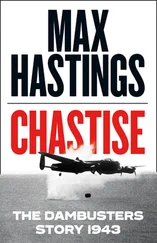Some people also offer practical objections to early fishing – that one loses two or three hours’ sleep to no great purpose, because the salmon seldom wake up much before 9 a.m. I come home from four out of five early-morning raids empty-handed, but the fifth success pays for all. On hot days, there is surely no better prospect of catching a fish than in the hours before the sun climbs high. In October and November, with relatively little time in which to fish, it is not difficult to keep casting from nine to five. My own slender afternoon scores in the summer partly reflect the fact that, more often than not, I fall asleep after lunch. Even when I am casting a fly in the torrid p.m.s, if there is little action, concentration flags. It is in the mornings that one goes at it like a tiger, fishing with deadly intent as long as there is water under the fly. Most fishermen possess an ability to convince themselves that a morning pool is virgin, that the line is touching the current for the very first time in human history. We banish our knowledge that others assaulted the same stretch with equal vigour the previous day, and perhaps night. We see ourselves as pioneers.
By the time we return to the same pools later in the day, as we usually must, that sense of freshness and adventure has gone. We still believe that we might catch a fish. But few of us can contrive to summon up at 4 p.m. the True Believing spirit we possessed at 10 a.m., that we will catch a fish. Most rods are goaded to new exertions in the evening, on rivers where rotating beats change at 8 p.m. or 9 p.m. The belief that fresh fish must have come in since dinner, and that anyway our predecessors on the beat were duffers, provides a powerful incentive. This is especially true of the Helmsdale, where each night the bottom pools of the river, those adjoining marvels the Whinnie and the Marrel, are visited by post-prandial enthusiasts, eager to catch a fish heavy with sea lice, just in off the tide. When I get my own turn down there, I would camp overnight on the bank if I thought I could get away with it. On my final evening of salmon fishing last season, we had people to dinner at the lodge. After they went home, I reflected: at 8 p.m., we had inherited one of the most unpromising beats on the river. Ninety minutes remained until closing time. Everybody else thought I was mad, but I couldn’t resist a cast. Not a fish moved, and the brief darkness was descending. I could scarcely glimpse my fly landing under the far bank. I came home empty-handed, and I am sure I was wasting my time. Angus the gillie would think it kindest to have me committed to some kind of home. Rationally, I am sure he is right. If one confined one’s summer fishing to a few hours every morning, most of us could catch at least 70 per cent of the numbers we land after casting almost around the clock.
Yet it is different for him, because he lives on the river. For those of us restricted to occasional pilgrimages, the only way we know of fishing is to keep alive that glimmer of hope, and a fly on the water, even in the doggiest hours of the summer day. Here is my own favourite thesis about the whole business: over a period, as distinct from the chance of a single day or week, the man or woman who catches most fish will be he or she who has their rod on the water longest in good conditions. What counts most is not that the fisher should be a wizard, but that fish should be present and willing. Unfair, isn’t it?
W E ALL EMBRACE the red-letter days when, miraculously, everything goes right for us. When I am feeling down about sport, I lift my spirits by recalling an idyllic August outing a couple of years back. I shot quite straight. You may say: so what? That is because you shoot straight all the time. But for those of us who spend much of the season throwing lead about the sky with the promiscuity of a bridesmaid broadcasting confetti, an outing on which things really work is cause for trumpets, champagne and rejoicing within the bosom of the family as well in the gamebook.
That day, on a marvellous moor in the north of England, everything went right from the start. First, there was no rain. Anyone who wears spectacles knows that on a seriously wet day, he is doomed. For non-spectacle-wearers who wonder what the experience is like, try driving down the M4 in a thunderstorm without benefit of windscreen wipers. On this occasion, in perfect visibility I hit the first grouse that crossed me – always the start one wants. There was a wind just sharp enough to push the birds along a bit, without making them impossible. A bird flashed past my neighbour, who missed. I killed it behind. After that, a steady succession of grouse came at all angles. I hit some and missed some, but after a couple of drives I knew that I was shooting in a fashion that might not impress Percys or Strakers, but golly, it impressed me.
I made good practice at single birds and small coveys, even quite far out. I did much less well at packs. Try as one will, it is so hard to concentrate on one grouse among forty, to the exclusion of all the others. I recited aloud the familiar mantra ‘Pick your bird, pick your bird,’ every time I watched a cloud of brown bullets lifting over the heather towards me. Yet time after time, I fluffed them when they arrived. One sometimes came down, but seldom two. I killed a lot on my right in front, where I usually miss. Why? Because early in August I went to see Dylan Williams at the Royal Berkshire Shooting School. I fired 150 cartridges at his grouse layout. We quickly established that I was firing behind and above those right-handers. When it came to the real thing, I aimed ten feet in front and two feet below the grouse. Again and again, it fell. Everything is about believing that you know where to point the gun. I never understand why some people are reluctant to go back to school when their shooting goes wrong. How else can one raise one’s game?
Конец ознакомительного фрагмента.
Текст предоставлен ООО «ЛитРес».
Прочитайте эту книгу целиком, купив полную легальную версию на ЛитРес.
Безопасно оплатить книгу можно банковской картой Visa, MasterCard, Maestro, со счета мобильного телефона, с платежного терминала, в салоне МТС или Связной, через PayPal, WebMoney, Яндекс.Деньги, QIWI Кошелек, бонусными картами или другим удобным Вам способом.












